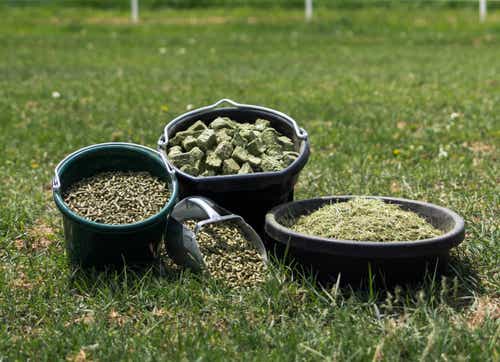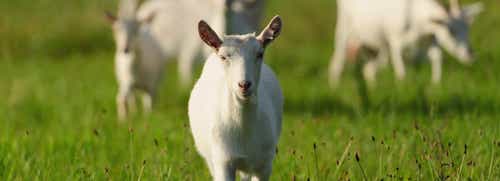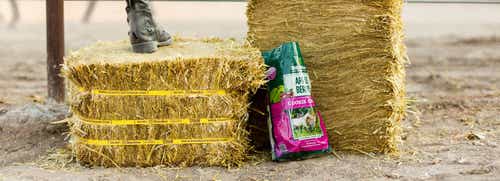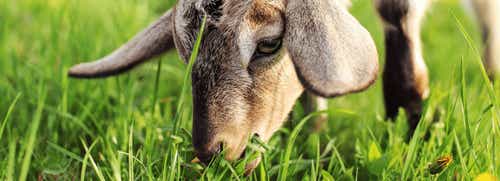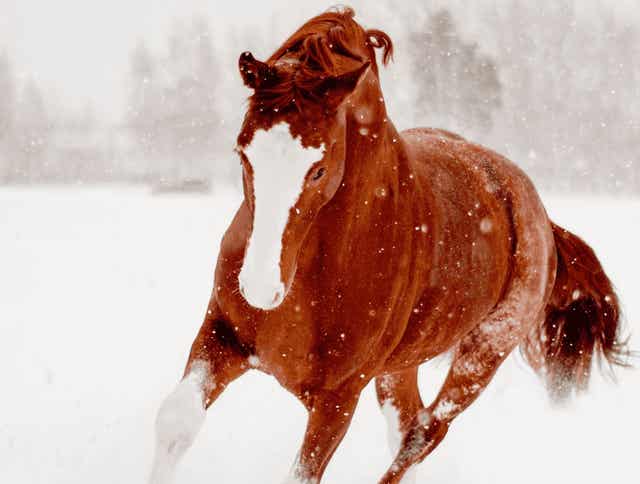
How Much Hay Does Your Horse Need For Winter?
Winter is upon us, which means pastures are dying and additional forage sources become a staple in horse diets. Are you the type of horse owner who buys what you can in late summer or fall, and then end up having to find more mid-winter, sometimes scrambling due to the lack of availability or settling for and paying a pretty penny for subpar quality because that is all that is left? Or do you like to plan ahead and try to purchase almost all the winter forage you’ll need before winter starts?
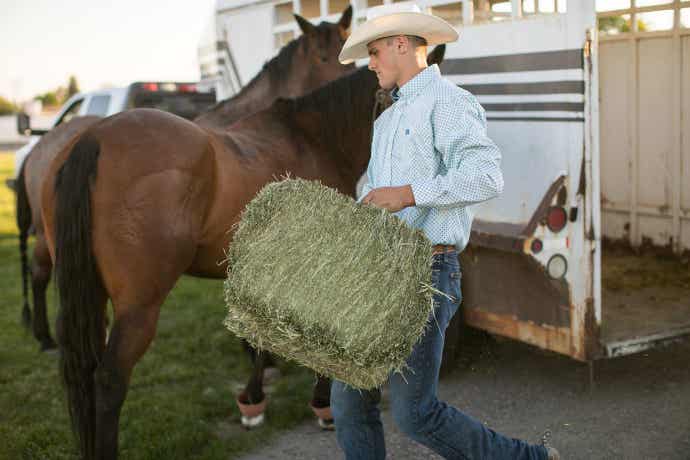
Maybe you wish you could do some pre-planning, but you have limitations. Not enough barn space? This is where compressed forage bales come in handy. It’s the same amount of forage as your common 50 pound bale (approximately), just in a convenient, compressed format, and for that very reason – the critical need for space. This could be for a barn with limited storage or during the summer months, traveling to numerous shows with minimal trailer space. Fit more forage with compressed or bagged products!
With colder months impending, it is important to prepare for the amount of forage you need to feed your horses over these months. Conservatively, a horse should consume 1.5% of its body weight (BW) in forage per day, at a minimum. Ideally, we would like this to be closer to 2.5% of their BW*.
Let’s look how much hay you may need to store to make it through winter for the following horses:
- 1000lb horse x 1.5% = 15lbs of forage per day
- 1000lb horse x 2.5% = 25lbs of forage per day
We typically have approximately 5 months (~150 days) of winter/mud season that our horses need 100% of their forage requirements supplied by hay or hay alternatives, which may vary depending on your location.
- 15lbs/day x 150 days = 1.13 tons
- 25lbs/day x 150 days = 1.88 tons
Let’s put this into perspective with some examples.
1.13 tons of forage equals:
- ~ 46 Standlee Compressed Bales
OR - ~ 57 bags of Standlee Premium Alfalfa Cubes
OR - ~ 25 Standlee Premium Timothy Compressed Bales and 26 bags of Standlee Premium Alfalfa/Timothy Cubes
1.88 tons of forage equals:
- ~ 76 Standlee Compressed Bales
OR - ~ 94 bags of Standlee Premium Alfalfa/Timothy Pellets
OR - ~ 55 bags of Standlee Premium Alfalfa/Timothy Chopped and 39 bags of Standlee Certified Timothy Pellets
Do you have a local hay supplier you trust and have used for years, but ran out or you’d like to add more quality forage to your feed program with Standlee? Or maybe, a few months from now, you find winter is lasting another month in your area this year? Rely on Standlee Premium Western Forage® for a dependable, consistent supply of quality forage. Let’s tack on another 30 days for a horse needing 2.5% of their body weight in forage.
25lbs/day x 30 days = 750 lbs
750 pounds of forage equals:
- ~ 15 Standlee Compressed Bales
OR - ~ 19 bags of Standlee Premium Alfalfa/Timothy Cubes
OR - ~ 11 Standlee Premium Alfalfa/Orchard Compressed Bales and 5 bags of Standlee Premium Orchard Pellets
If you’ve got more than one horse, just remember to multiply it out by the number of horses you’re needing to feed through the winter. Are you prepping for how much forage you’ll need this winter?
Helpful notes for figuring your personal hay supply needs:
- Standlee Forage compressed bales are approximately 50 pounds
- Standlee Forage bagged products are 40 pounds, i.e. alfalfa cubes, timothy pellets, etc. (except for beet pulp shreds being 25 pounds)
- Standlee Forage is available at farm and ranch retail locations across the United States – no matter where you go, you know you’ll get consistent, high quality forage
- Adverse weather conditions, such as wind or rain and differences below critical temperature, require an increase of digestible energy, which means more forage to help maintain body condition
References:
- *National Research Council. 2007. Nutrient Requirements of Horses: Sixth Revised Edition. Washington, DC: The National Academies Press.




